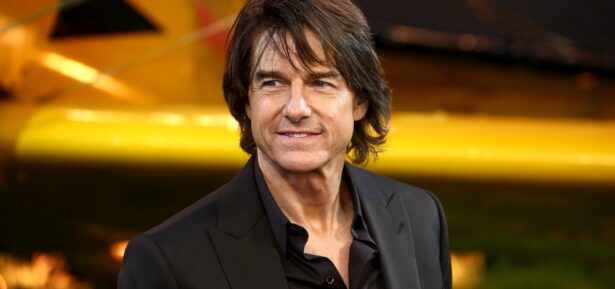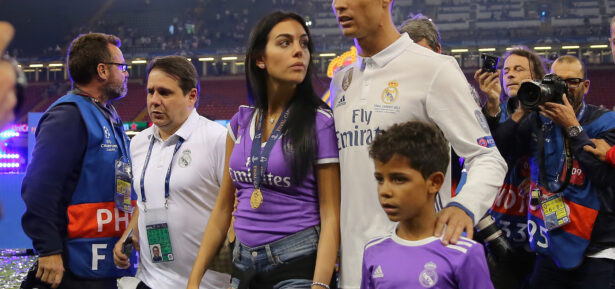Dark and introversive, an examination in loss and anguish, misogyny, self-hatred, and a surreal descent into mourning; Antichrist is not a film for beginners. Antichrist opens with a graphically uncensored introduction to a couple, our main characters that encompass the entire cast of the film, who remain unnamed throughout. The husband (Willem DaFoe) is a therapist, and the wife (Charlotte Gainsbourg) is a writer. During a short introduction, we learn that their infant son is lost; this tragedy drives the remainder of the film, playing out like chapters in a book. Grief, Pain, and Despair overcome the female lead, and the film begins.
Grief, Pain & Despair
Overcome with grief, Willem Dafoe attempts to treat his wife’s profound depression. Her condition worsens, becoming encapsulated by her own guilt, while Dafoe acts as her antithesis, steadfast and focused on pulling his spouse back to normalcy. Through her therapy, the decision is made to remove her from their current environment; retreating to an isolated cabin wherein Charlotte Gainsbourg’s character spent time writing in past summers. Cut off from the familiarity of day-to-day life, the couple begin to spiral out of control; experiencing hallucinations, manic sexual deviancy, exceeding issues of distrust and delusions of persecution. The ever-advancing psychosis overcomes the couple.
Chaos Reigns
Visually staggering, explicit, and masterfully orchestrated, the conversions from day to night while deep in the woods of Eden lend a hyper-saturated energy to the emotional extremes experienced by the couple. Set in the Pacific Northwest, however actually filmed in Germany; the monolithic trees create a claustrophobic environment that encapsulates the stars from the rest of the world. Originally focused on a study of grief, the film quickly turns to introspection, self-hatred, and misogyny on the part of the wife. At the end of the day, Antichrist is an observation of Nihilism, detailing the utter inconsequence of sex, love, death, and human existence as a whole, especially poignant, against the backdrop of an insurmountable forest. An overwhelming sense of meaning, and validation of the tragedy they experience ultimately worthless to the remainder of the world, even as far as the reactions of the wife, targeting not simply herself as the enemy, but her own sexuality as an evil condition of nature.
Nature is Satan’s Church
The use of the woods almost as a living character in the film, as well as the blurred faces of supporting cast members from early in the film further spotlight our leads. Such a calculated decision which further demonstrates the artistic vision of the director. Like a painting with motions and sound, the only music in the film is arching arias, screams, guttural sexuality and the tears of mourning.
Winning critical acclaim in Director Lars Von Trier’s home of Denmark, as well as a prestigious list of awards, including Charlotte Gainsboug winning best actress at Cannes; Antichrist stood out amongst only the deepest of American cinephiles, almost entirely missed by the mainstream media. Antichrist was withheld from a widespread US release for fear of an NC17 rating, which it surely would have received. Sadly, as is often the case, those in love with film must seek out the best the art form has to offer. Antichrist is available on DVD, and Blu-Ray; and is currently available for streaming on Netflix. Be warned, this is not a feel good film, or an easy ride. This movie is explicit, sexualized and gory at times; but is very worth its destination.
Tobii Rex: World’s First Eye-Tracking Accessory
New Developments in the Fight against Breast Cancer
-
Credit: Shutterstock Taylor Swift has done it again — in true Swiftian fashion, the pop powerhouse dropped a glittering...
-
Credit: Shutterstock Fans of Kelly Clarkson received unexpected and emotional news this week, as the beloved singer and talk...
-
Credit: Shutterstock Best to Worst DC Superheroes DC has been cranking out superheroes for over 80 years, which...
-
Credit: Envato Elements Here Are Some Starter Plants for Newbies Want to add some life to your home without...
-
Credit: Shutterstock The Thriller Movie You’ve Been Waiting For Just when you thought the hook-wielding killer was gone for...
-
Credit: Envato Elements Avoid These Tourist Spots = Too Crowded! It’s wild how quickly a beautiful, peaceful spot...
-
Credit: Shutterstock Justin Bieber Drops Surprise Album Swag in Chaotic Release as Insiders Tease Second Album on the Way...
-
Credit: Shutterstock Five Stars for July 4: A Patriotic Film Watchlist for 2025 As fireworks light up the sky...
-
Credit: Shutterstock Simpsons Finale Says “Bye Bye Beehive” in Teary Flash-Forward Springfield has never seen a twist quite like...
-
Credit: Shutterstock Brad Pitt Might Reunite with Tom Cruise—But Says No Thanks to Death-Defying Stunts Could Brad Pitt and...
-
Credit: Pexels Can you hear that? It’s the sound of wedding bells echoing through Hollywood and beyond! 2025 is...
-
Singer-songwriter and global content creator Sheena Melwani releases her brand-new single, “More of You,” an intimate and emotionally rich...



















